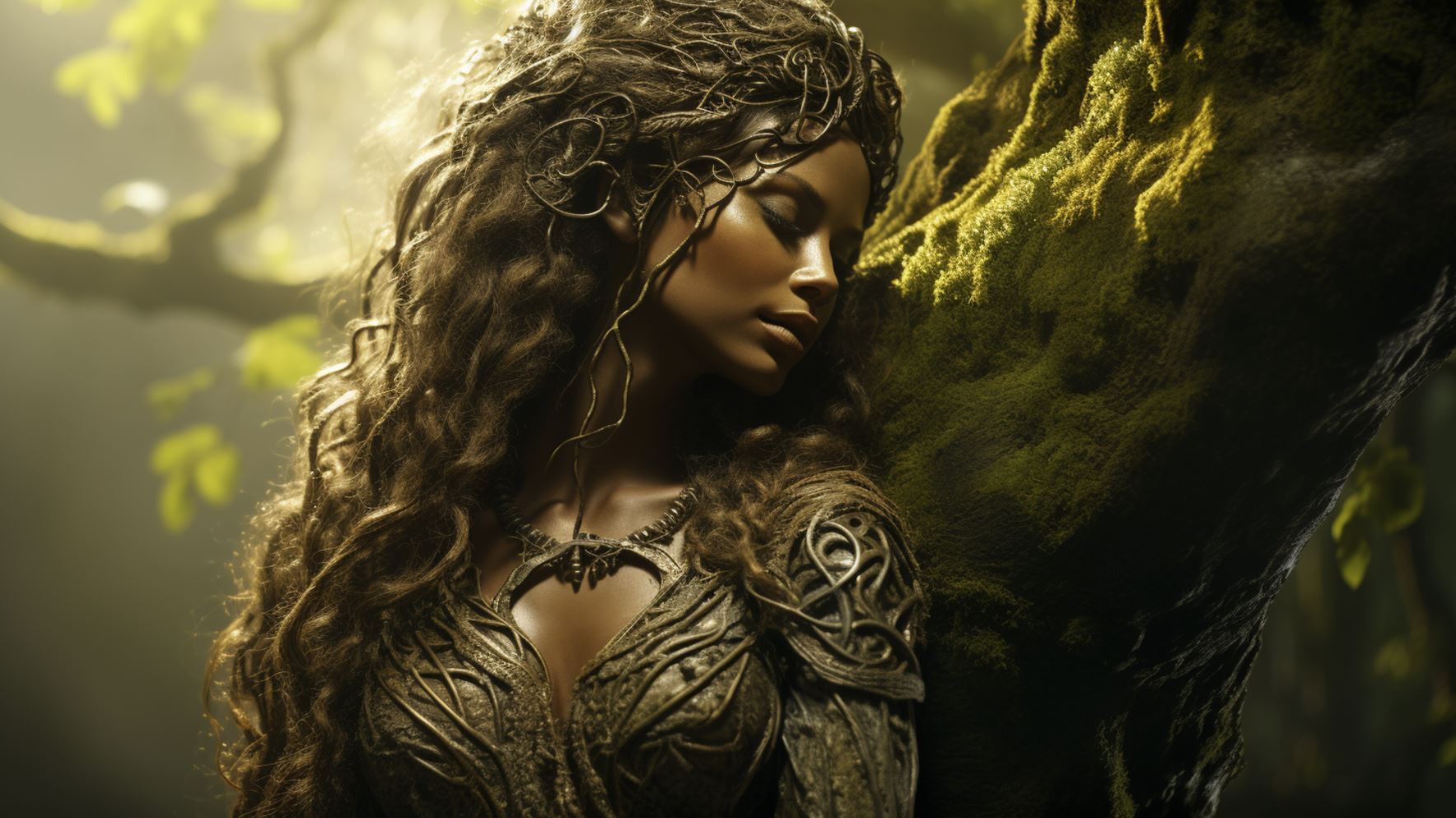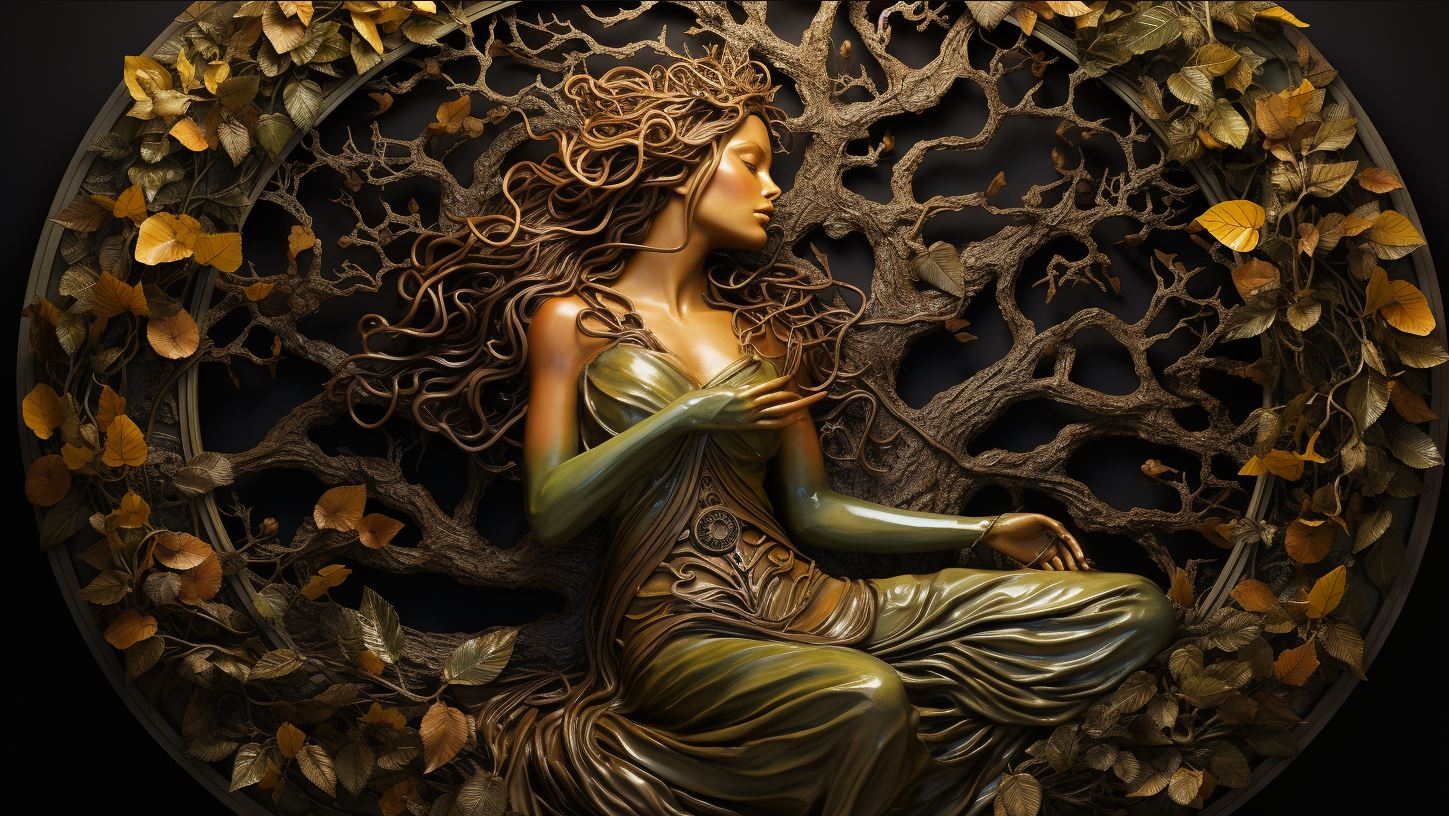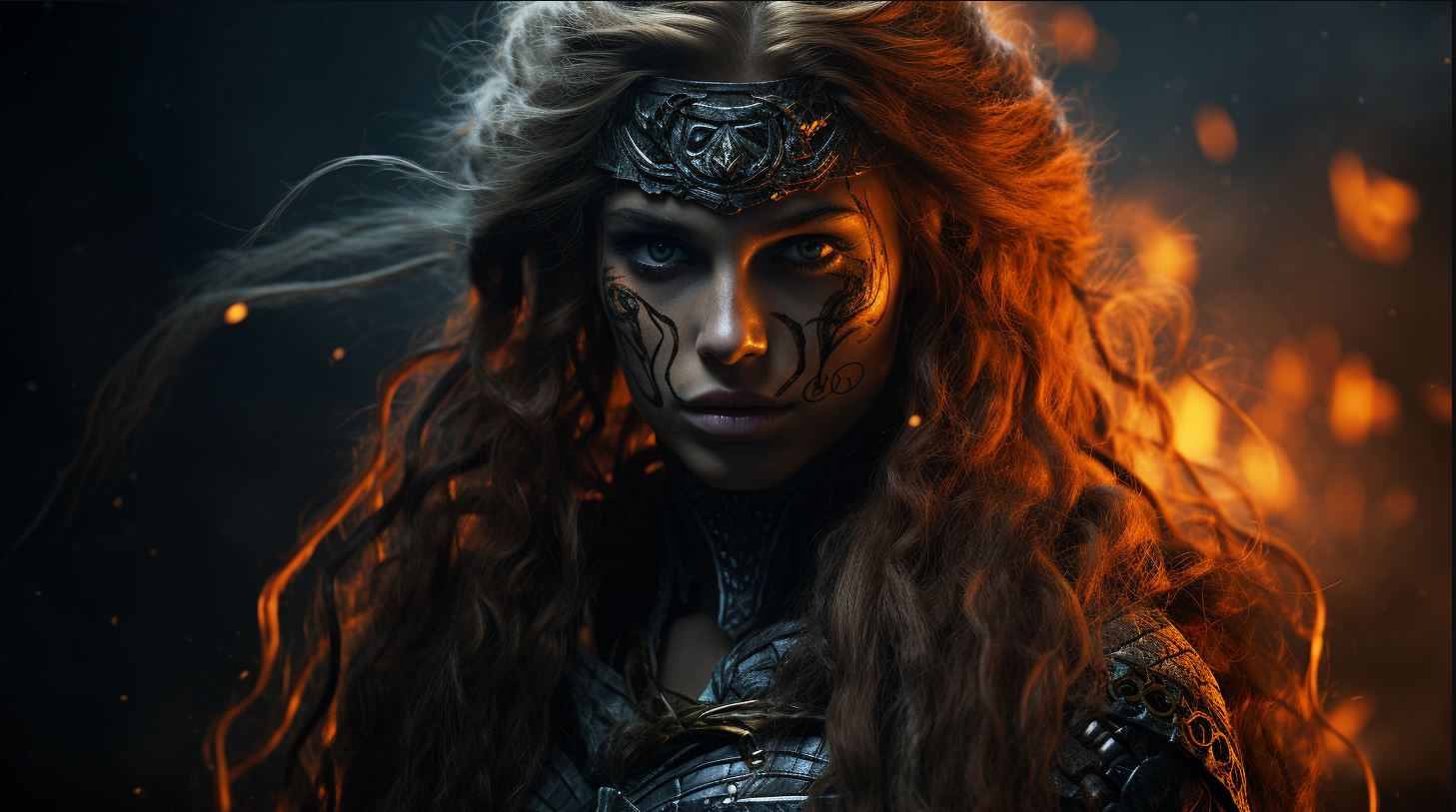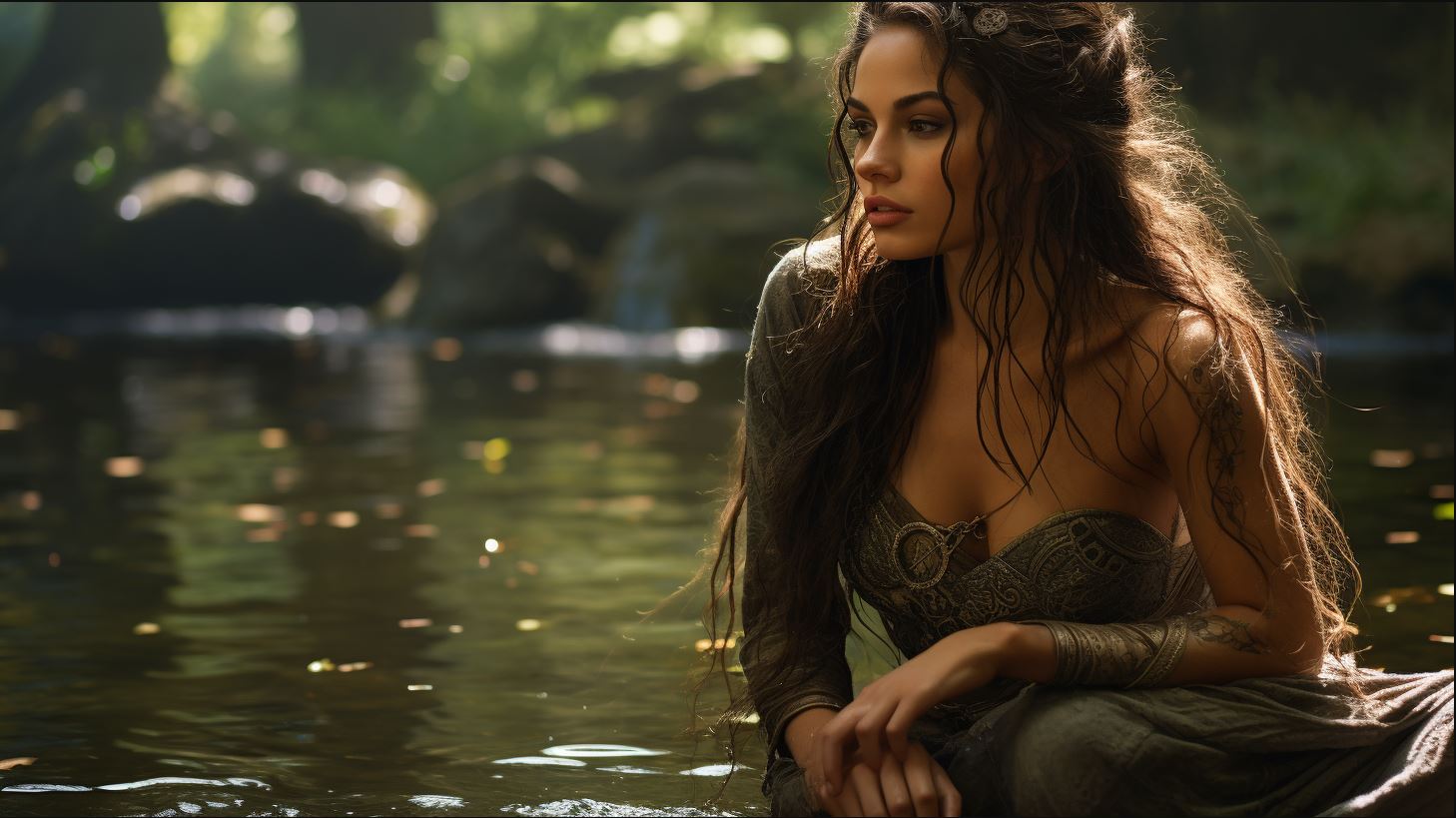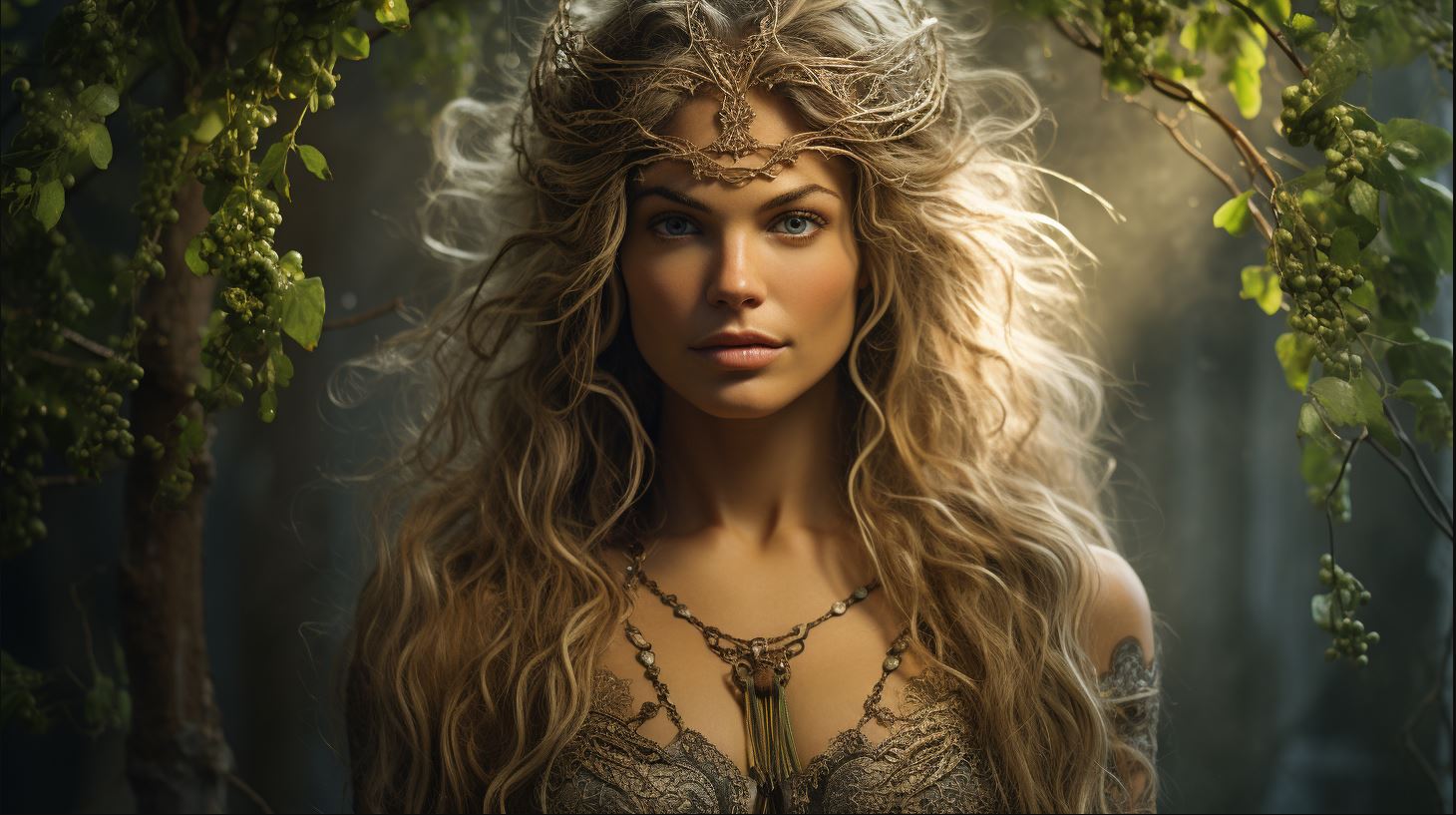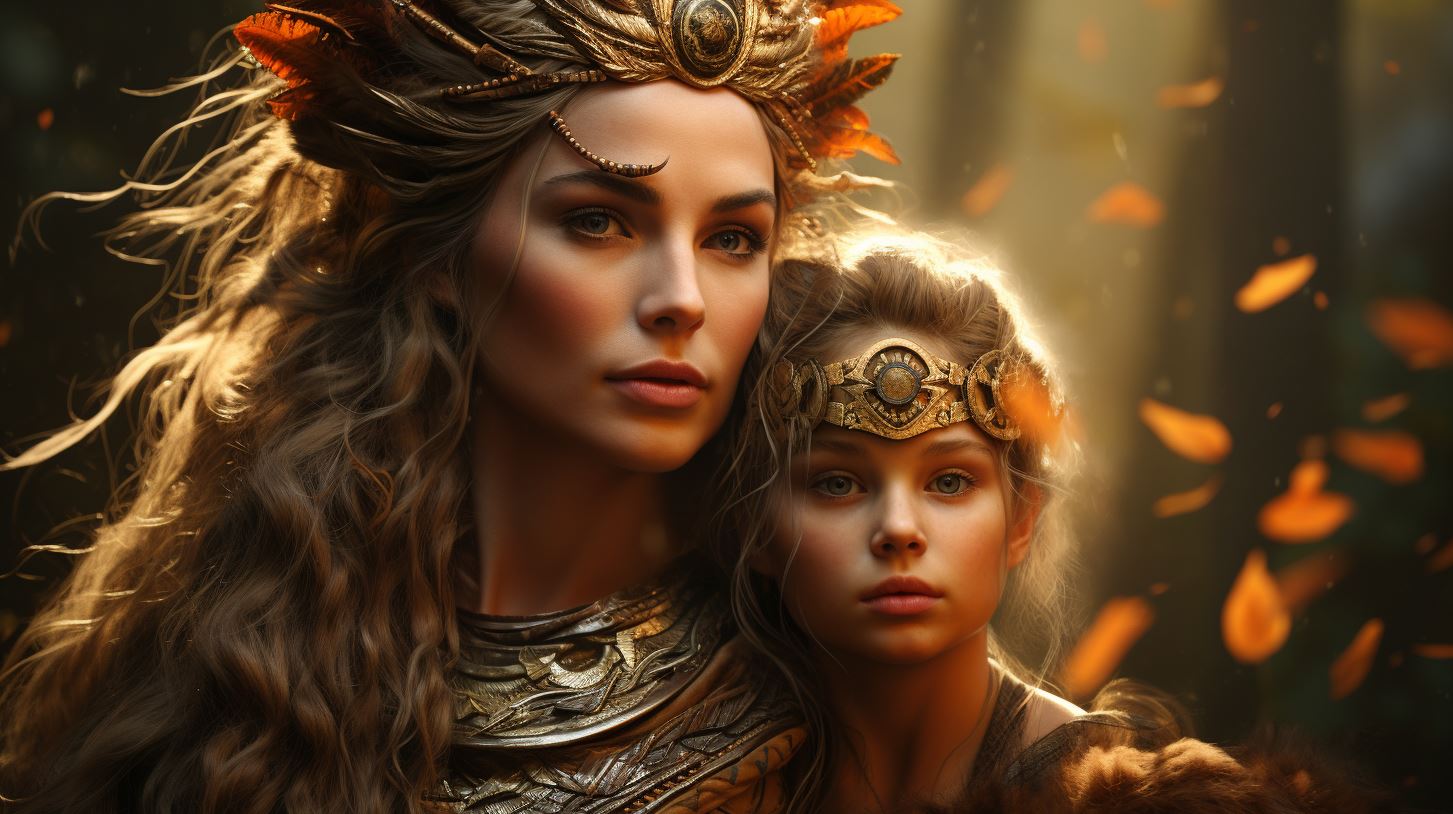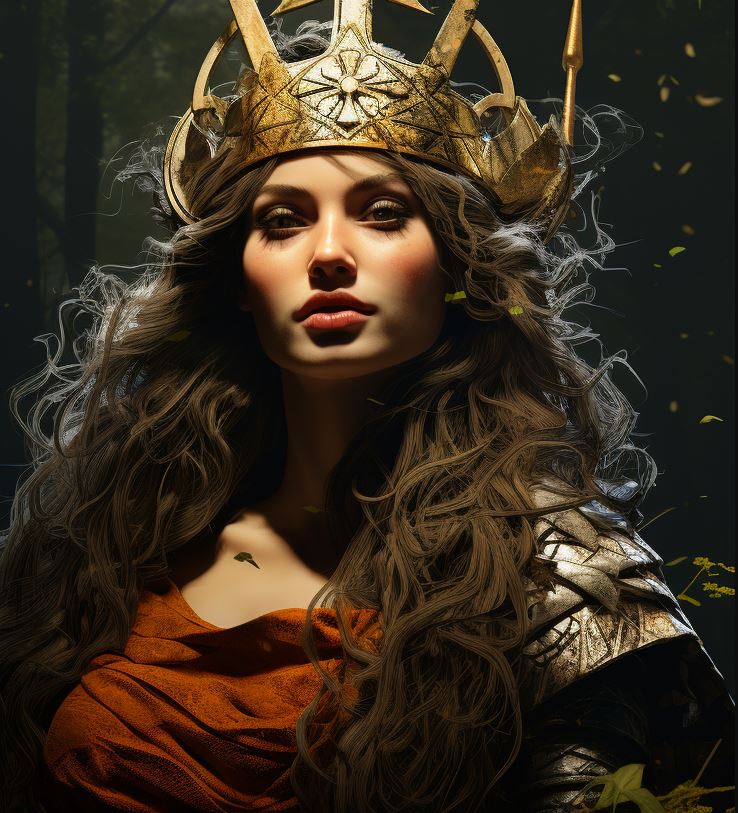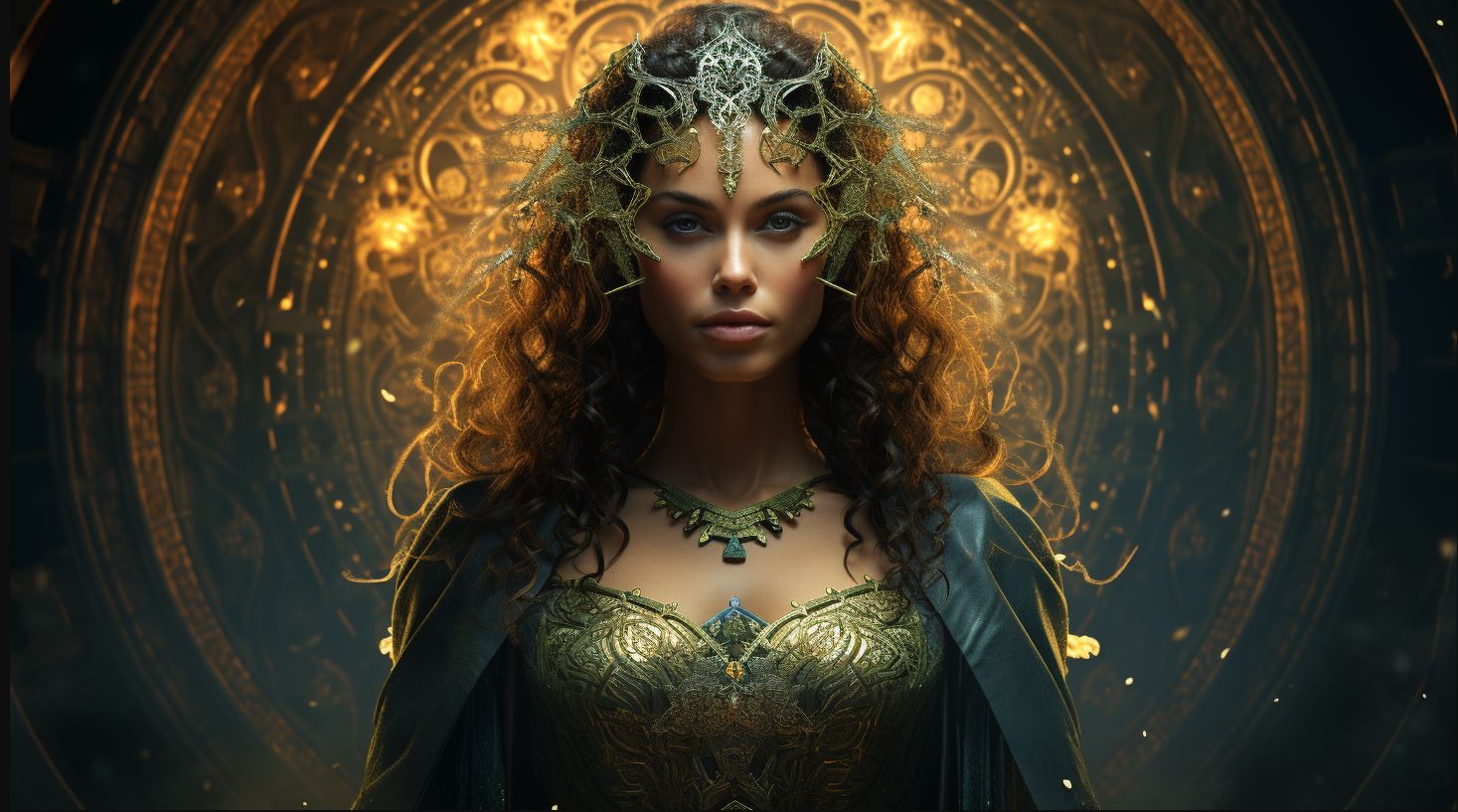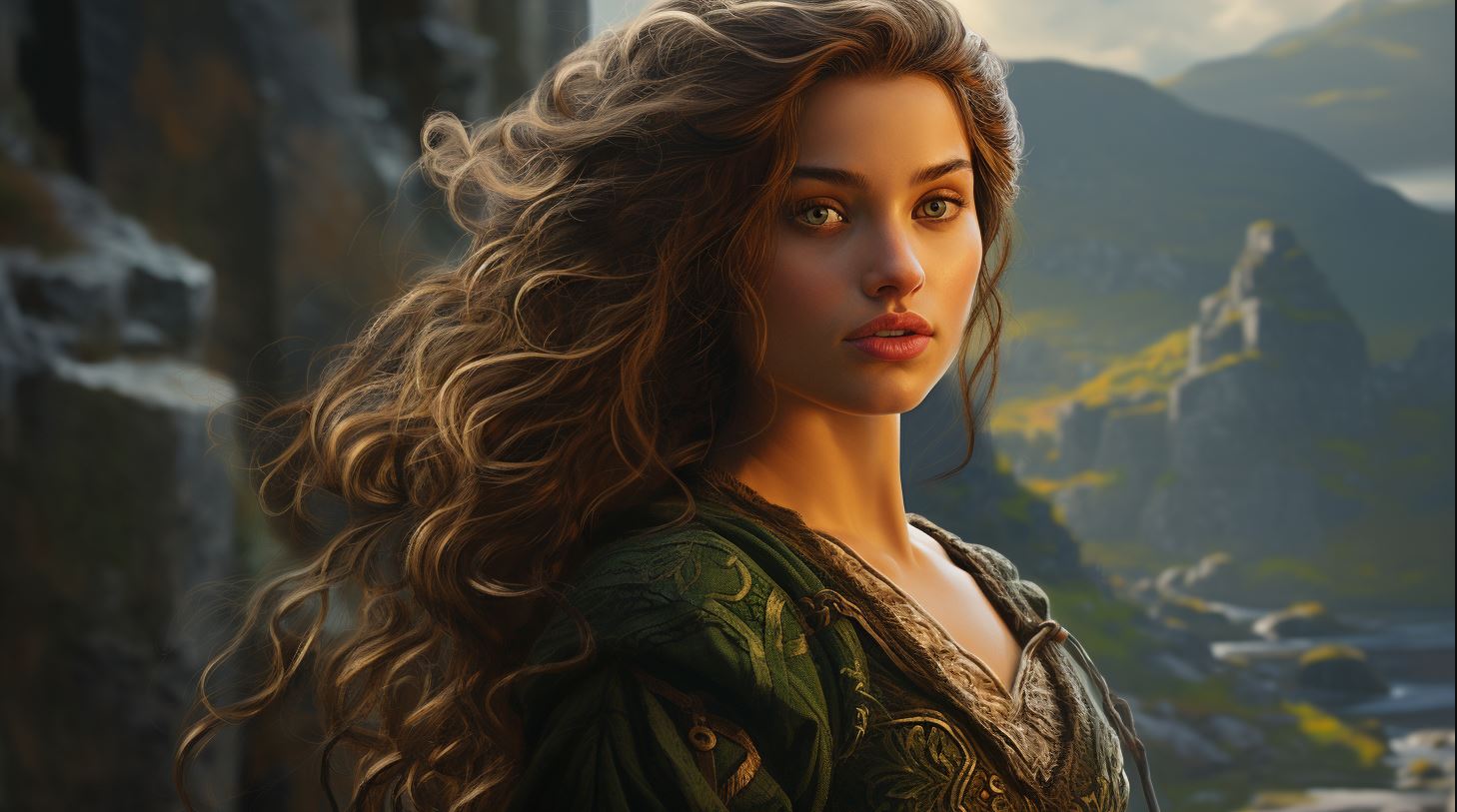Eriu Goddess: Unearthing the Ancient Irish Earth Deity
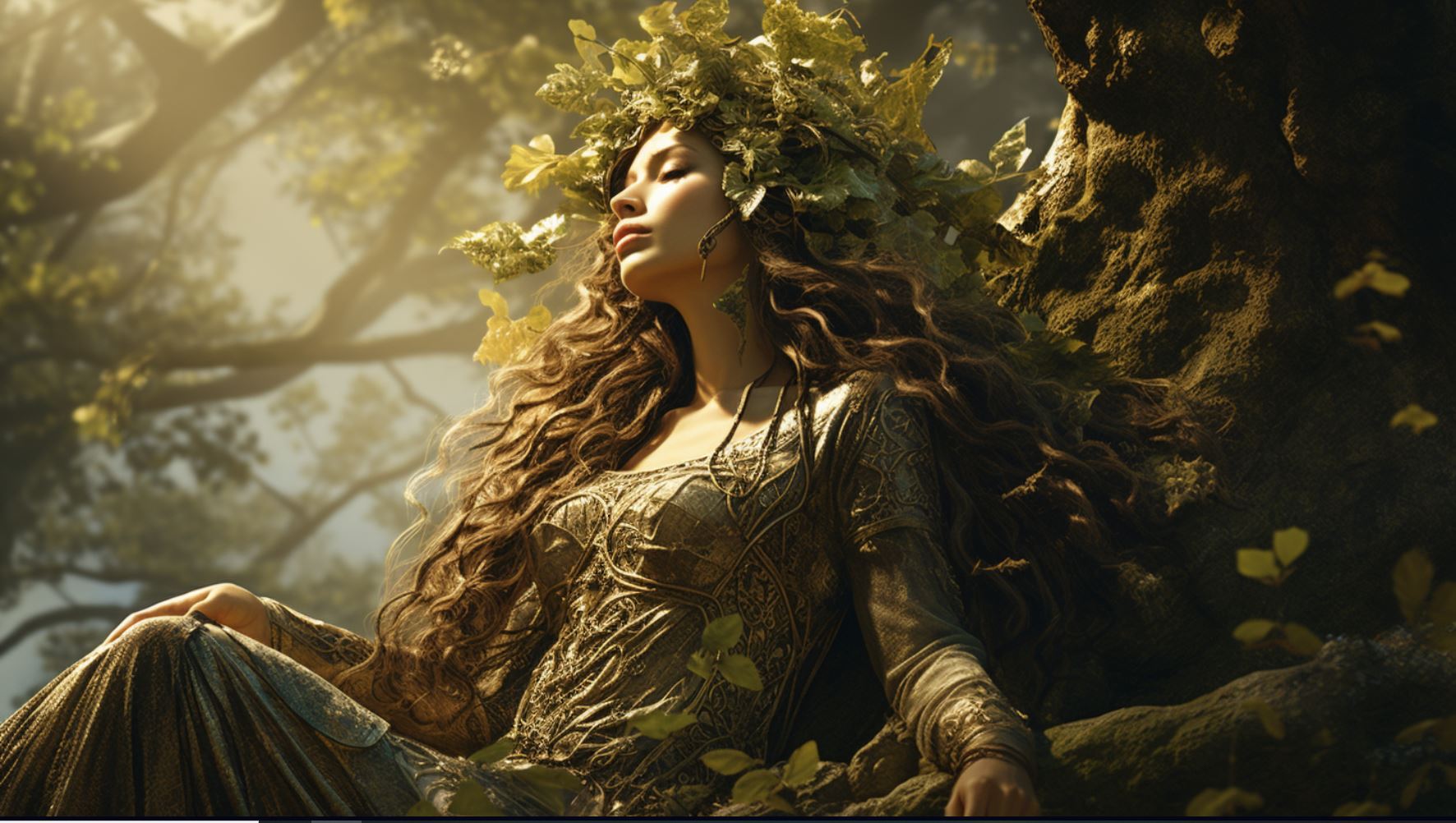
Ériu Goddess holds a significant place in ancient Irish mythology, representing the deity of the land and personification of Ireland. Associated with the Tuatha Dé Danann, a mythical race, Ériu is known as a powerful figure alongside her sisters Banba and Fódla.
This article explores Ériu’s origins, her relationships and offspring, as well as delves into the influential role of Maeve in Irish history. Additionally, we delve into Eriu Goddess-related products, including crafts, textiles, and exquisite jewelry inspired by her legacy.
Welcome to the captivating world of Ériu Goddess and her mythical realm.
Origins of Ériu Goddess
The origins of Ériu Goddess are deeply rooted in ancient Irish mythology, where she holds a significant role as the deity of the land and the personification of Ireland itself. Within the rich tapestry of Irish folklore, Ériu’s presence represents the sacred connection between the land and its people, embodying the essence of the Emerald Isle.
Ancient Irish Mythology
In the realm of ancient Irish mythology, countless tales and legends intertwine to form the foundation of Ériu Goddess’s origins. From the mythological cycle emerges the enchanting narrative of gods, goddesses, and mighty heroes, where Ériu takes her place as a central figure.
Ériu’s Role in Irish Mythology
Ériu’s role as the goddess of the land reflects the deeply ingrained reverence that the early Irish held for the natural world around them. She personifies the fertile earth, the flowing rivers, and the verdant landscapes that granted life to the island of Ireland.
The Tuatha Dé Danann and Ériu’s Family
Ériu, as the daughter of Delbáeth and Ernmas, is intertwined in the intricate lineage of the Tuatha Dé Danann, an ancient mythological race. Her divine heritage, passed down through generations, establishes Ériu as a prominent figure within the pantheon of Irish deities.
Ériu, Banba, and Fódla: The Sovereign Goddesses
class=”intro”>Ériu, Banba, and Fódla hold significant roles as the sovereign goddesses of Ireland in ancient Irish mythology. Revered as powerful and influential divine figures, they are often referred to collectively as the “Women of the Tuatha Dé Danann.”
This section explores their sisterly bond, their titles and relationships, and the legendary tale of their defense against the Melesians’ invasion.
Ériu, Banba, and Fódla as Sisters
In Irish mythology, Ériu, Banba, and Fódla are depicted as sisters, sharing a deep and sacred connection. As the daughters of Delbáeth and Ernmas, prominent members of the Tuatha Dé Danann, these goddesses embody the sovereignty and essence of Ireland itself.
Together, they symbolize the land and its divine protection.
Titles and Relationships of the Goddesses
Within the intricate tapestry of Irish mythology, Ériu, Banba, and Fódla hold various titles and divine relationships. They are hailed as goddesses, matronly figures, and custodians of the land. Ériu, in particular, is often associated with motherhood and holds intimate connections with gods like Lugh, Elatha, and Mac Gréine.
Despite some variations in the myths and legends, their roles as sovereign entities remain consistent.
The Legend of the Melesians’ Invasion
One of the tales that depict the power and determination of Ériu and her sisters revolves around the Melesians’ invasion of Ireland. The divine trio demanded the invaders to depart, but when their demands were ignored, Ériu passed a judgment of death upon Donn mac Miled, a prominent Melesian figure.
It is believed that this event led to the naming of Ireland in honor of Ériu, later known as Erin in modern times.
Throughout this tumultuous story, the unwavering strength and divine authority of Ériu, Banba, and Fódla shine as they fiercely protect the sacred land, leaving a lasting legacy in Irish mythology and history.
Ériu’s Relationships and Offspring
In this section, we delve into the intriguing relationships and offspring of Ériu, the prominent Goddess of Ireland.
Lugh and Elatha: Ériu’s Lovers
Among Ériu’s notable lovers are the mighty deity Lugh and the Fomorian prince Elatha. Lugh, a prominent figure in Irish mythology, shares a passionate connection with Ériu, which speaks to their divine bond.
Elatha, a prince from the Fomorian race, becomes Ériu’s partner and together they have a son, Bres.
Ériu’s Son: Bres, the Fomorian Prince
Bres, the offspring of Ériu and Elatha, assumes a significant role in Irish mythology. As a Fomorian prince, Bres fosters intrigue and becomes entwined in the complex narratives of ancient Irish tales.
His lineage and the divine blood he carries shape the unfolding mythological events and tensions within the Irish mythos.
Other Possible Relationships: Mac Gréine
Besides Lugh and Elatha, another possible relationship suggested in the mythological accounts is the association between Ériu and Mac Gréine. While the nature of their bond remains somewhat ambiguous, it offers another layer of mystery surrounding Ériu’s personal life and connections.
Exploring these intricate relationships and the offspring of Ériu sheds light on the complexities of Irish mythology and provides insight into the divine heritage and lineage associated with the goddess. Each relationship plays a unique role in shaping the mythological narratives and the enduring legacy of Ériu in Irish folklore.
Maeve: A Powerful Figure in Irish History
Maeve of Connacht
Maeve, a prominent figure in Irish history, was known for her influential reign over the province of Connacht. As a powerful queen, she displayed strength, independence, and a determination to achieve her goals.
Maeve’s leadership was marked by her unwavering commitment to her people, as she strived to protect and enhance the prosperity of Connacht.
The Story of Táin Bó Cúailnge
One of the most well-known tales associated with Maeve is the epic saga of Táin Bó Cúailnge, also known as the Cattle Raid of Cooley. This legendary story revolves around Maeve’s relentless pursuit of an extraordinary bull, the Brown Bull of Cooley, which belonged to her rival in Ulster.
Maeve’s determination and strategic prowess are brought to the forefront as she faces numerous challenges and engages in fierce battles to secure the coveted bull.
Maeve’s Influence and Legacy
Maeve’s legacy extends beyond her rule over Connacht and her role in the Táin Bó Cúailnge. She is revered as a symbol of female power and agency, challenging traditional gender roles and expectations.
Maeve’s assertiveness, intelligence, and ability to command respect have made her an enduring figure in Irish folklore and a source of inspiration for women throughout history.
Eriu Goddess-Related Products
Explore a world of exquisite craftsmanship and inspired beauty with our collection of Eriu Goddess-related products. Each item is infused with the essence of ancient Irish mythology, capturing the mystique and power of Ériu herself.
From traditional Irish crafts and textiles to captivating jewelry, we offer a range of unique pieces that embody the spirit of this revered deity.
Irish Crafts and Textiles
Immerse yourself in the rich cultural heritage of Ireland with our selection of meticulously crafted Irish textiles. From intricately woven blankets to cozy knitwear for both men and women, these pieces showcase the skill and artistry of Irish craftsmen.
Experience the warmth and beauty of Ériu’s homeland through these exquisite creations.
Jewelry Inspired by Eriu Goddess
Adorn yourself with jewelry that pays homage to the goddess of the land, Ériu. Inspired by her strength and grace, our collection features intricately designed pieces that capture her essence.
From necklaces embellished with Celtic symbols to earrings reflecting the natural beauty of Ireland, each item is a stunning tribute to Ériu’s enduring legacy.

